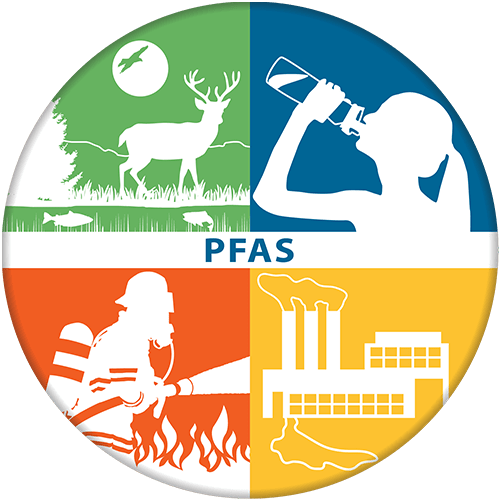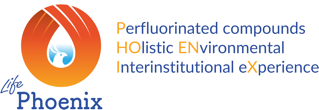Webinar series "PFAS: Models, Techniques and Tools for Evaluation and Intervention". November 26-27, 2020. - Life Phoenix

On November 26-27, as part of the LIFE PHOENIX project, the Department of Biology of the University of Padua organizes a series of webinars entitled "PFAS: Models, Techniques and Tools for Evaluation and Intervention".
The webinars are mainly aimed at the Phoenix project stakeholders, such as public administrators, managers of public bodies (e.g. regional Health Units), company managers, sector industry operators, reclamation consortia, fruit and vegetable producers and farmers, but it is open to all those who intend to deepen the issues in question.
The events will take place on the Zoom platform. It is possible to participate without any registration, just connect to the following link: https://unipd.zoom.us/j/82488101920
The work program is divided into 4 sessions, 2 for each day:
Thursday 26 - Part I: TECHNICAL-INSTITUTIONAL APPROACHES & METHODOLOGIES
- Session 1 - Public Management (9:00 - 11:30)
- Session 2 - Scientific Approaches (11:30 - 13:30)
Friday 27 - Part II: INDUSTRIAL & AGRO-ENVIRONMENTAL ASPECTS
- Session 1 - Industry (9:30 - 11:45)
- Session 2 - Agriculture (12:00 - 13:30)
The PUBLIC MANAGEMENT Session focuses on the management of emergencies dealing with environmental pollution cases with a look on specific events and, in particular, on the development of a Datawarehouse platform as an integrated analysis and supporting tool for intervention and maintenance policies of the environmental well-being. Next, the important development of a forecasting model on PFAS dispersion in the water bodies of the Veneto Region will be presented. Finally, an overview of the PHOENIX project actions will be shown.
The SCIENTIFIC APPROACHES Session starts from the analysis and development of models for the study of the pollutant dynamics in aquatic environments. Therefore, the use of investigation techniques using early warning biomarkers, which allow to verify the effects of polluting molecules on animal bioindicators, will be introduced and discussed. In addition, a series of reports will be presented, concerning the experimentation and evaluation of PFAS presence, both in a controlled environment (laboratory) and in the field, on animal and plant biological matrices and on the interactions between microbial cenoses.
The INDUSTRY Session starts from the discussion about the genesis and destination of PFAS. An overview of PFAS production and disposal will therefore outline the importance of treating these molecules, such as the emerging pollutants, in the light of the REACH legislation. Subsequently, the wide use of these molecules in everyday products will be highlighted. Due to the long half-life of PFAS, then, the dispersion in the environment has made these molecules omnipresent, with risks for the health of ecosystems and the human population. Those issues required studies on their dangerousness and activated proposals for their possible replacement with other chemical substances (see EU Project Life Vermeer).
The AGRICULTURE Session will highlight the potential of water networks and the important maintenance activities, necessary to ensure a wide and safe use of drinking water for the population and irrigation water in agriculture. Finally, the perspective of the constant implementation of biodiversity in the agrosystems of the Veneto Region will be presented, with a focus on the 2030 Agenda objectives.
The LIFE PHOENIX Project (Perfluorinated compounds and HOlistic ENvironmental Interinstitutional eXperience), co-funded by the European Union in 2017, was born from the collaboration between the Veneto Region (as Project Leader), University of Padua (Department of Biology, Department of Industrial Engineering and CRIEP - Inter-University Research Center for Public Economics), ARPAV, CNR-IRSA and Azienda Zero. The main objective of the project is to increase knowledge on the risk related to the spread of emerging Mobile and Persistent Organic Contaminants (PMOCs) in the environment, with particular reference to the case of short-chain PFAS that are present in the waters of some Provinces of the Veneto region. Specifically, the project envisages the development of an interinstitutional governance model, aimed at reducing the dispersion and impact of these substances in our region and that it can be replicated in other European regions that have similar criticalities in the water matrix. In view of the project ending (March 2021), the organization of a cycle of seminars has been planned in order to illustrate the activities that have taken place in the last three years and to present part of the achieved results.
Questo sito fa uso di cookie (tecnici e analitici ad essi assimilabili) per migliorare l'esperienza di navigazione degli utenti e per raccogliere informazioni sull'utilizzo del sito stesso. Oltre ai precedenti il presente sito contiene componenti di terze parti (Facebook, Twitter, Google) che utilizzano cookie di profilazione a scopi pubblicitari per i quali e' necessario prestre il consenso. Proseguendo nella navigazione nel sito si accetta l'uso di tutti i cookie di terze parti precedentemente elencati.

